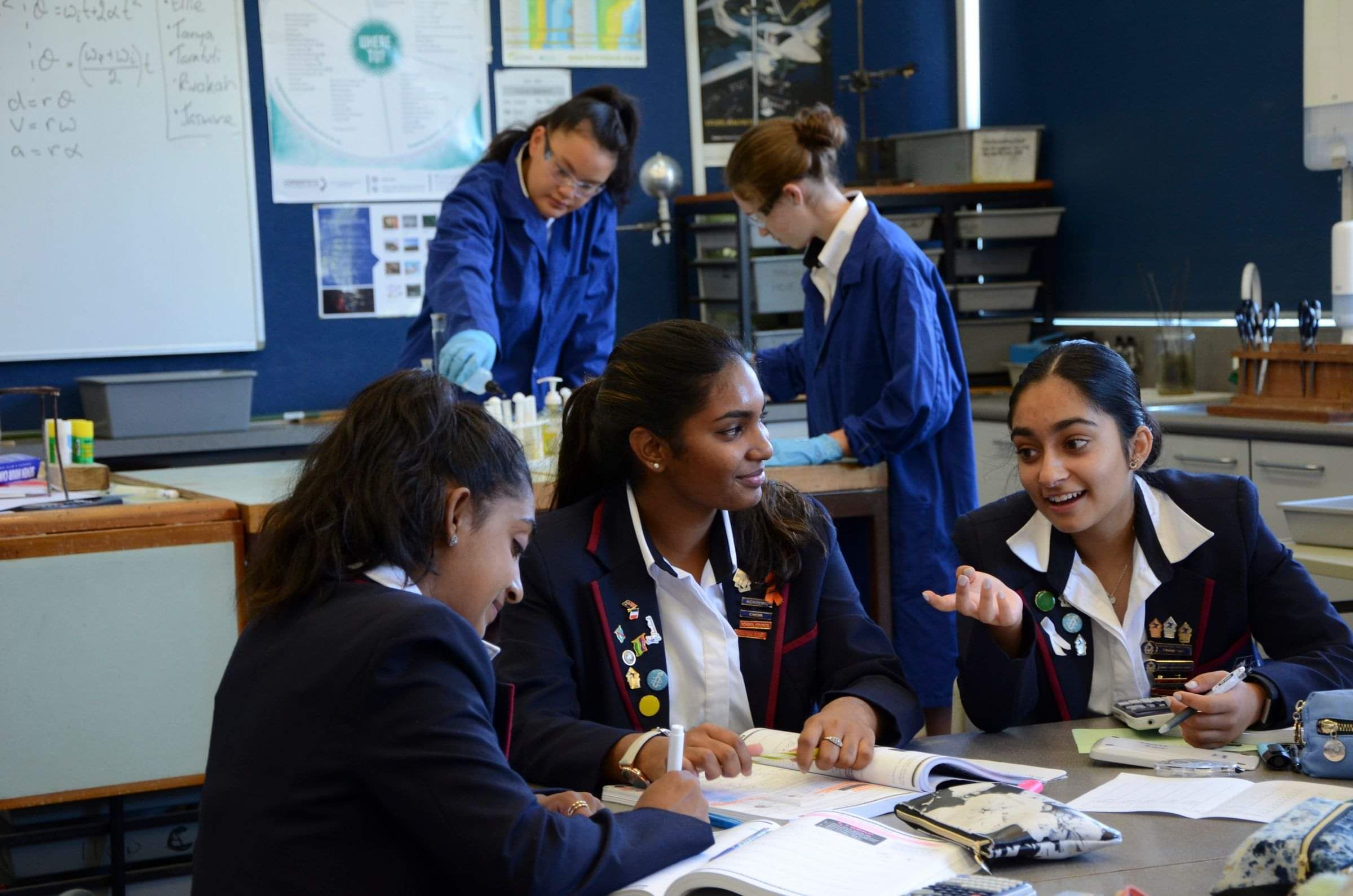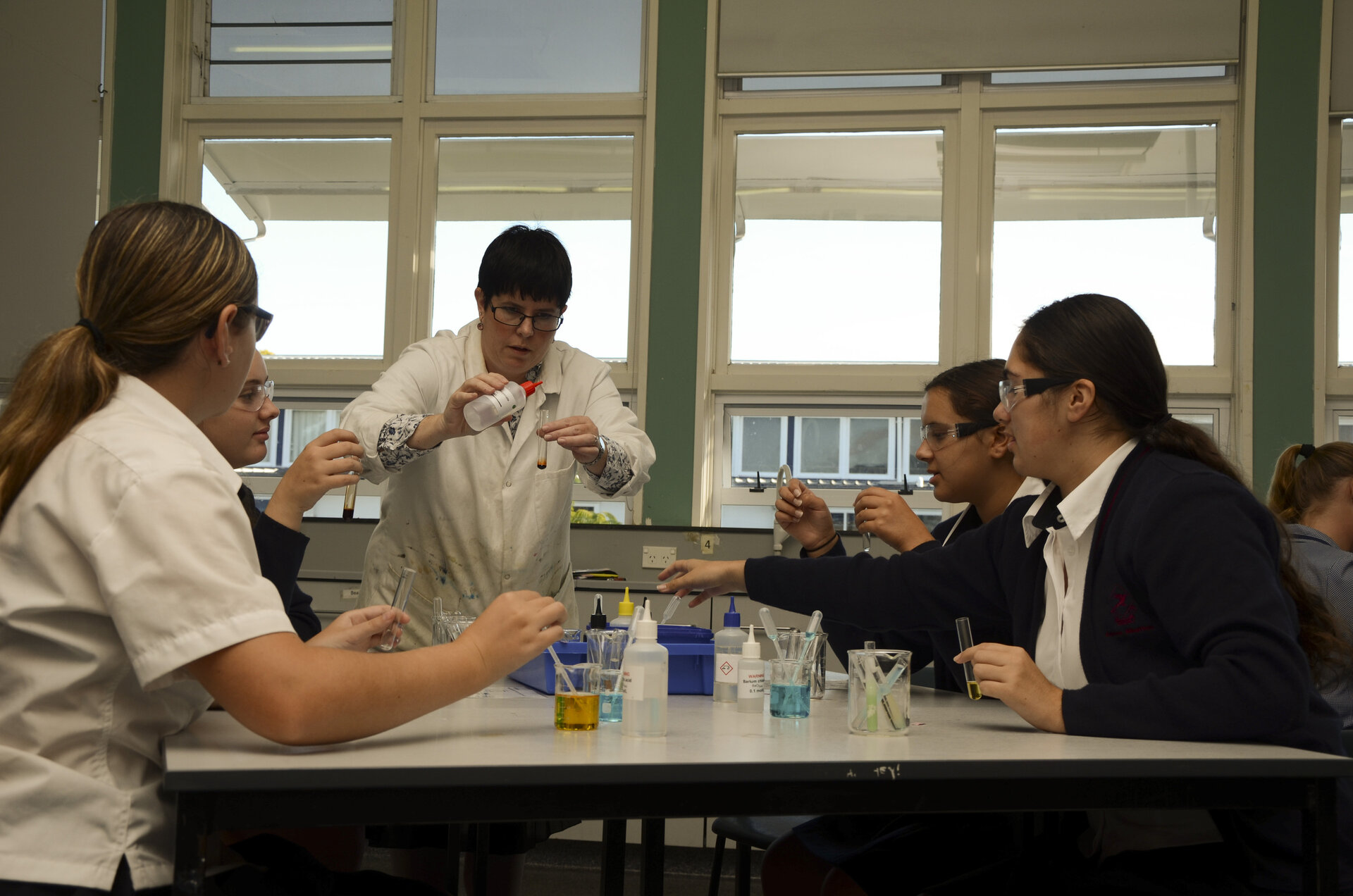PŪTAIAO (SCIENCE)
Pūtaiao (Science) is a way of investigating, understanding and explaining our natural world, physical world and the wider universe. It involves generating and testing ideas by gathering evidence. This includes making observations, carrying out investigations, modelling, communicating and debating with others in order to develop scientific knowledge, understanding and explanations.
Career choices – why choose Pūtaiao at Level 1 or Sciences at Level 2 or 3?
Sciences are recommended subjects for many careers you may not expect, e.g. armed forces, police, and many more! Physics, Chemistry and Biology are APPROVED SUBJECTS for all University Entrance qualifications.
There is also always a demand for Scientists in New Zealand, Australia, and across the world. Here are some possible careers - ecologist, environmental scientist, environmental engineer, pharmacist, medical laboratory scientist, exploration geologist, emergency and critical care vet, biochemist, botanist, exercise physiologist, food safety chemist, doctor, nurse, radiographer, geneticist, astronomer, animal scientist, microbiologist, physiotherapist, dentist, midwife. Salaries are usually in the higher range for Scientific and Technical careers.
Seven of "the 20 top jobs New Zealanders should be studying for" are science jobs.

Science is about understanding the world around us. Students learn to carry out investigations, research ideas and use their knowledge to solve problems.
Biology is about living things and how they interact with each other and the environment.
Chemistry involves the study of matter and the changes it undergoes and understanding the composition and properties of atoms and molecules.
Physics provides explanations for a wide range of ideas, including light, sound, heat, electricity, waves, forces and motion, united by the concept of energy that cannot be created or destroyed.
LEVEL 1
Science for Health, Chemical, Engineering and Biological
This Level 1 Science course covers all the strands of Science. The course includes Achievement Standards that will cover Physics, Chemistry and Biology. Students will be assessed from internal and external standards. Please consider this course if you enjoy Science, even if you are not sure you want to pursue a Scientific career. Level 1 Science opens doors to many career choices that are not obviously scientific.
The course involves practical and theoretical work and the skills of collaborative as well as independent learning are developed. Use of practical investigations involving designing experiments and testing ideas assist the student, along with the existence of the Tuakana-teina tutorials where students can get individual help from Science specialists.
Entry Guidelines: No entry requirements
Leads to: Higher level study in Chemistry, Biology, Physics or Sciences at Levels 2 and 3
Teacher in Charge: Whaea Candyce Keelan
Ahuwhenua/Te Whakamahi (Agricultural and Horticultural Science)
Dive into the intricate world of Agricultural and Horticultural Science at Level 1. This course explores the interconnectedness of everything in the growing environment, from soils and climate to plants and animals. Sustainability is at its core, with a focus on environmental, social, and economic factors. Studying Agriculture and Horticulture can lead to a wide range of vocations such as: Farmer, Orchardist, Horticulturist, Agricultural Technician, Crop Consultant, Food Scientist and Plant or Animal Breeder. This subject offers hands-on experience and the development of critical thinking skills.
Key Features:
Discover the interconnectedness of the growing environment
Embrace sustainability and innovation
Develop vital competencies: critical thinking, collaboration, self-awareness
Multidisciplinary approach, connecting Science, Technology, and more
Entry Guidelines: No entry requirements
Leads to: Further Science/AgriTec at Level 2, pathways to diverse careers in agriculture and horticulture
Teacher in Charge: Mr C Woodhams
LEVEL 2
Koiora (Biology): Life Processes and Genetic Variation
Biology is the study of living things, how they interact with other living things and the environment. Biology develops an understanding of how life is incredibly varied yet based on common processes. Studying Biology can lead to a huge variety of careers, from Health and Sports Sciences to Environmental and Marine Sciences through to Vet Nursing, Massage Therapy and Nutrition. This course provides a pathway to course endorsements through both internally and externally assessed Achievement Standards that explore how plants and animals are adapted to their environment, carry out their life processes, and change at a genetic level over time. We also look at ecological distribution patterns at the rocky shore and the reasons for these patterns. Finally, we develop experimental design skills to investigate osmotic processes in model cells which leads to osmoregulation in Level 3 Biology.
Entry Guidelines: Achievement in at least one Level 1 Science external, preferably genetic variation, or at the discretion of the HOD
Leads to: Level 3 Biology
Teacher in Charge: Miss A Sherwood
Mātauranga matū (Chemistry): Structure of the Universe
Chemistry is the study of matter and the changes it undergoes. Chemistry develops the understanding of the composition and properties of matter, the changes it undergoes, and the energy involved to make sense of the world around them.
This course includes a mixture of internally and externally assessed Achievement Standards that will explore the understanding of:
Bonding, structure, properties and energy changes
Properties of selected organic compounds
Chemical reactivity
Equilibrium principals
The nature and properties of acids and bases
Oxidation and reduction reactions
Practical investigations into substances present in a consumer product using quantitative analysis
Entry Guidelines: Achievement in at least one Level 1 Science external standard or at the discretion of the HOD
Leads to: Level 3 Chemistry
Teacher in Charge: Mrs M Goodson
Ahupūngao (Physics): The Forces of the Universe
This Level 2 Physics course looks at the interactions between matter and energy and develops an understanding of the laws that govern force and motion, matter and energy, and space and time.
This course includes a mixture of internally and externally assessed Achievement Standards that will explore the understanding of:
Mechanics
Waves
Atomic and nuclear physics
Electricity and electromagnetism
Future pathways:
Essential for students wishing to pursue a career in engineering
Required by some architecture courses
Highly recommended for entry into health sciences for a career in medicine/dentistry and physiotherapy
Entry Guidelines: Achievement in at least one Level 1 Science external standard and Mathematics external or at the discretion of the HOD
Leads to: Level 3 Physics
Teacher in Charge: Ms Y Zhao
Pūtaiao (Science): Citizen Science
Students will develop the ability to evaluate scientific issues that affect them now and in the future, and to respond to them.
They will build their knowledge of science content and science processes, and practice the types of thinking, questioning, and actions needed to become informed citizens.
The focus will be around developing the science capabilities across the four learning areas within Science (Biology, Chemistry, Physics, Earth and Space Science). The science capabilities are: gather and interpret data, use evidence, critique evidence, interpret representations, and engage with science.
Entry Guidelines: Achievement in one Level 1 Science course or at the discretion of the HOD
Leads to: Further Citizen Science
Teacher in Charge: Mr P Chamberlain
LEVEL 3
Koiora (Biology): Ecology and the Formation of New Species
Biology is the study of living things, how they interact with other living things and the environment and how they change over time. Studying Biology can lead to a huge variety of careers, from Health and Sports Sciences to Environmental and Marine Sciences through to Vet Nursing, Massage Therapy and Nutrition. Biology in Level 3 explores the adaptive advantage of animal behaviours and plant responses to maximise reproductive success: from mating behaviours and why animals migrate to why plants grow the way they do. We also look into why there is so much diversity in living things and how new species form. We use advanced experimental design to investigate distribution patterns or the effect of environmental factors on the life processes of organisms; past studies have looked at nest distribution patterns of Gannets at the Plateau colony at Cape Kidnappers and Crab distribution patterns at Ahuriri Estuary. We also research a socio-scientific issue, learning how to form an opinion based on evidence. This course provides a pathway for course endorsements, University Entrance and both Numeracy and Literacy credits.
Entry Guidelines: Achievement in at least one Level 2 Biology external, preferably genetic variation, or at the discretion of the HOD
Teacher in Charge: Miss A Sherwood
UE Approved
Mātauranga matū (Chemistry): Building Blocks of Our World
Chemistry is about understanding the properties of different substances and how these substances can change. Chemistry allows us to predict how substances may alter when the surrounding conditions change, or how they may react to form new substances, and to explain why this happens.
Chemistry goes on continuously, all around us: in plants that make food using the air and in animals that digest this food, in the burning of fuel and rusting of cars, in the formation of snow and ice, in the industries that supply us with all our household products, and in the many biological processes that maintain the living world.
Students will relate properties of matter to structure and bonding, develop an understanding of and use the fundamental concepts of Chemistry including equilibrium and thermochemical principles to interpret observations.
They will investigate the chemical and physical properties of a range of groups of substances, including acids and bases, oxidants and reductants, and selected organic and inorganic compounds.
Entry Guidelines: Achievement in two Level 2 Chemistry external standards or at the discretion of the HOD
Leads to: Health sciences, nursing, veterinary science, biochemistry, marine science, geology, food science, engineering and pharmacy
Teacher in Charge: Mr P Chamberlain
UE Approved
Ahupūngao (Physics)
This Level 3 course builds on the areas of study at Level 2. Most of the available credits are from the external standards.
The main areas of study are:
Wave systems
Electrical systems
Mechanical systems
An understanding of Modern Physics
Entry Guidelines: Study of Level 2 Physics
Leads to: Entry requirement for engineering and some architecture courses, recommended for first year health science and biomedical science
Teacher in Charge: Mrs Y Zhao
UE Approved
Pūtaiao (Science): Further Citizen Science
For students who wish to continue the study of Science and may be considering diploma courses in areas such as Veterinary Nursing and Primary Industries such as Horticulture and Viticulture.
This course will consist of internal standards from Biology and Earth & Space Science. The credits from this course can contribute to the 60 Level 3 credits required by universities. However, it will not count as an approved subject as the course consists of standards from two different subject areas.
Entry Guidelines: Followed the Level 2 Citizen Science Course or other Science Courses at Level 2
Leads to: Diploma courses in areas such as Veterinary Nursing and Primary Industries such as Horticulture and Viticulture
Teacher in Charge: Mr P Chamberlain
